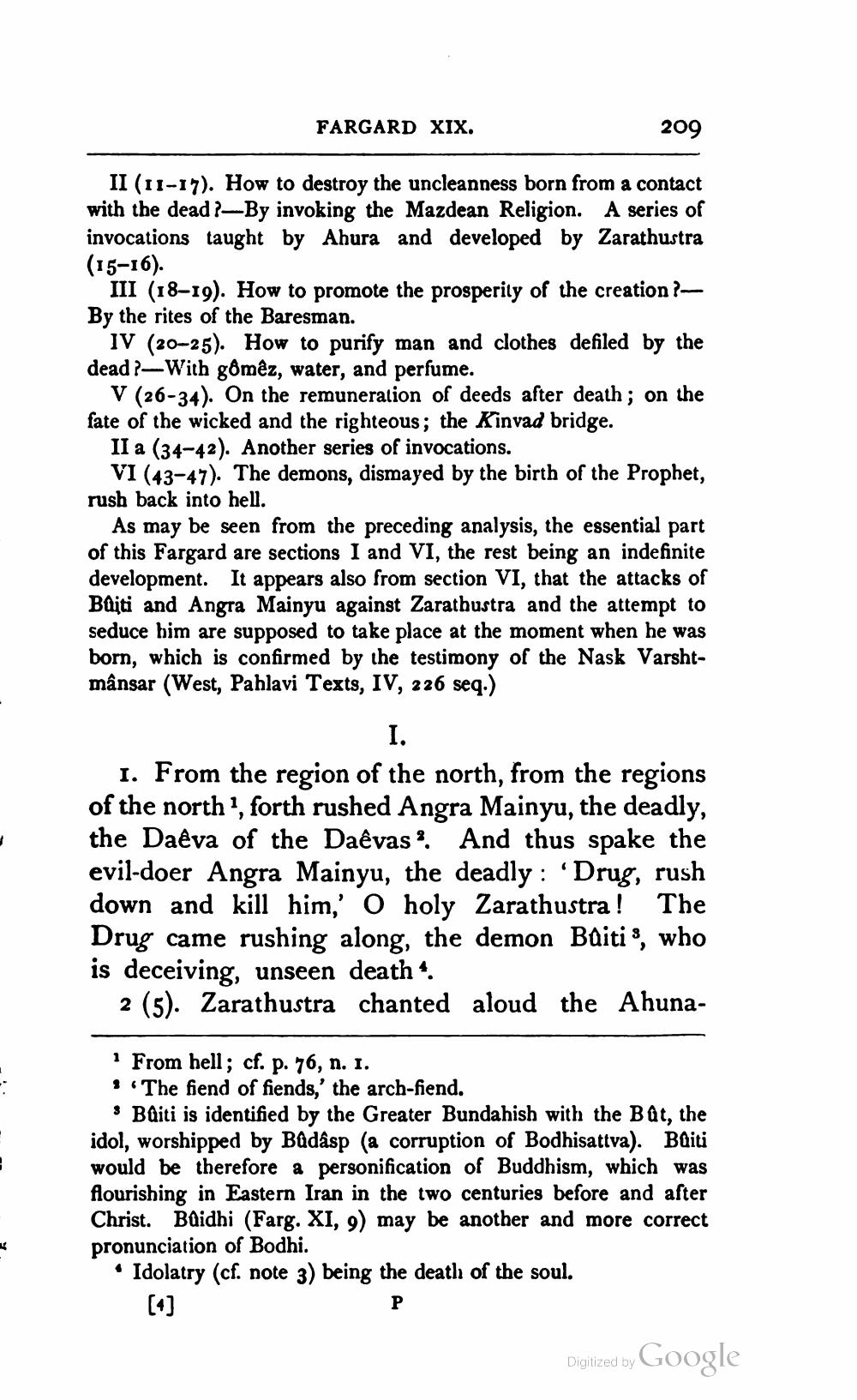________________
FARGARD XIX.
209
II (11-17). How to destroy the uncleanness born from a contact with the dead ?-By invoking the Mazdean Religion. A series of invocations taught by Ahura and developed by Zarathustra (15-16).
III (18-19). How to promote the prosperity of the creation ?By the rites of the Baresman.
IV (20-25). How to purify man and clothes defiled by the dead ?-_With gômêz, water, and perfume.
V (26-34). On the remuneration of deeds after death; on the fate of the wicked and the righteous; the Kinvad bridge.
II a (34-42). Another series of invocations.
VI (43-47). The demons, dismayed by the birth of the Prophet, rush back into hell.
As may be seen from the preceding analysis, the essential part of this Fargard are sections I and VI, the rest being an indefinite development. It appears also from section VI, that the attacks of Bajti and Angra Mainyu against Zarathustra and the attempt to seduce him are supposed to take place at the moment when he was born, which is confirmed by the testimony of the Nask Varshtmânsar (West, Pahlavi Texts, IV, 226 seq.)
I. From the region of the north, from the regions of the north ", forth rushed Angra Mainyu, the deadly, the Daêva of the Daêvas? And thus spake the evil-doer Angra Mainyu, the deadly : 'Drug, rush down and kill him,' O holy Zarathustra! The Drug came rushing along, the demon Baitis, who is deceiving, unseen death *.
2 (5). Zarathustra chanted aloud the Ahuna
From hell; cf. p. 76, n. 1. • The fiend of fiends,' the arch-fiend.
• Bùiti is identified by the Greater Bundahish with the Bat, the idol, worshipped by Badasp (a corruption of Bodhisattva). Buiti would be therefore a personification of Buddhism, which was flourishing in Eastern Iran in the two centuries before and after Christ. Buidhi (Farg. XI, 9) may be another and more correct pronunciation of Bodhi.
• Idolatry (cf. note 3) being the death of the soul.
Digitized by Google




